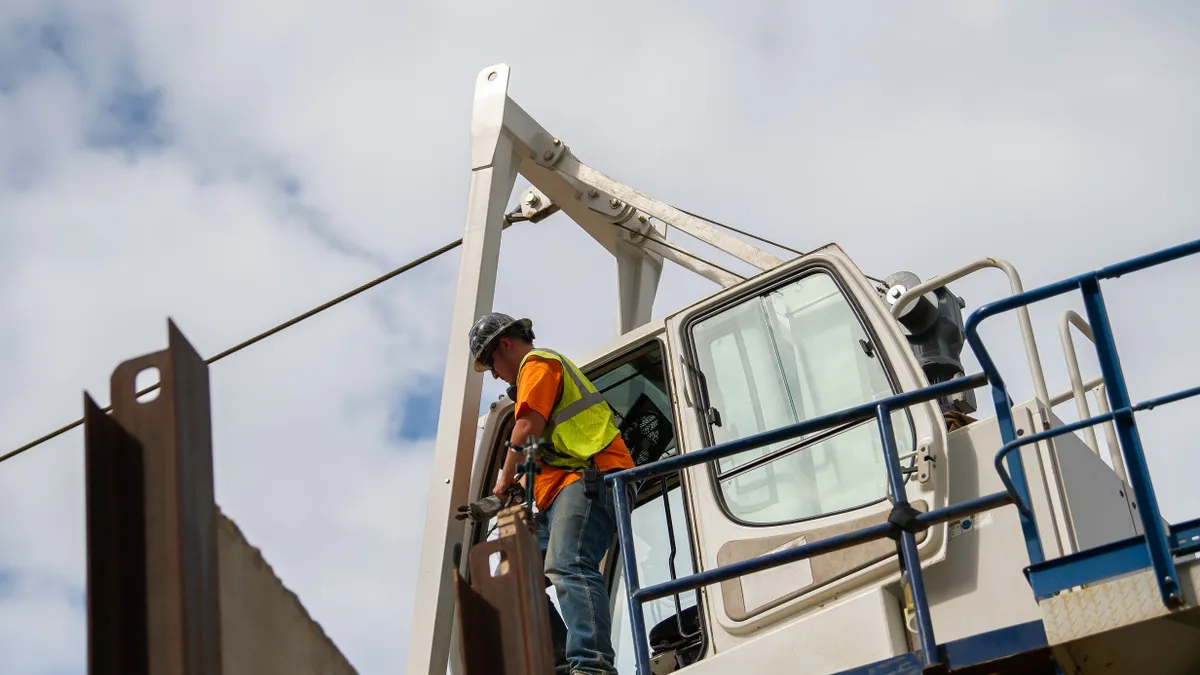Dive Brief:
- Construction backlog decreased to 8.7 months in March, its lowest level since August 2022, according to Associated Builders and Contractors.
- After hovering around highs not seen since before the pandemic, the backlog reading lost some momentum in March due to inflated costs, lending uncertainty and overall slowdown concerns, said Anirban Basu, ABC’s chief economist.
- “The deceleration in nonresidential construction activity may have started,” said Basu. “With widespread fears of recession, credit conditions tightening and more decision makers turning their attention to cost containment, new construction work may be more difficult for contractors to line up.”
Dive Insight:
As a positive contrast to backlog’s decline, ABC’s Construction Confidence Index, which measures executives’ outlook for sales, profits and hiring over the next six months, inched slightly higher but was still lower than a year ago. Meanwhile, the readings for profit margins and staffing levels decreased last month.
Nonetheless, all three indicators remain above the threshold of 50, indicating expectations of growth over the next six months.
Backlog for commercial, institutional, heavy industrial and infrastructure projects all posted declines in March.
While last month’s confidence and backlog data is weaker, Basu said the reading indicates a slowing of activity rather than a complete shift into reverse. For example, backlog levels increased in the South region, which continues to be associated with elevated levels of current and future construction activity, according to the report.
Other data reflected slowing activity, as well. The Dodge Momentum Index, a benchmark that measures nonresidential building planning, decreased 8.6% in March. Banking insecurity has recently led small banks to tighten lending standards, which subsequently caused a pullback in short-term construction planning, according to the Dodge report.
That could indicate owners and developers will rethink their strategies during the next few months, said Basu.
“There is a widely held view that financial conditions are tightening in the aftermath of the failures of Silicon Valley Bank and Signature Bank,” said Basu. “To the extent that this is true, one could anticipate further slowing and less industry confidence during the months ahead.”














